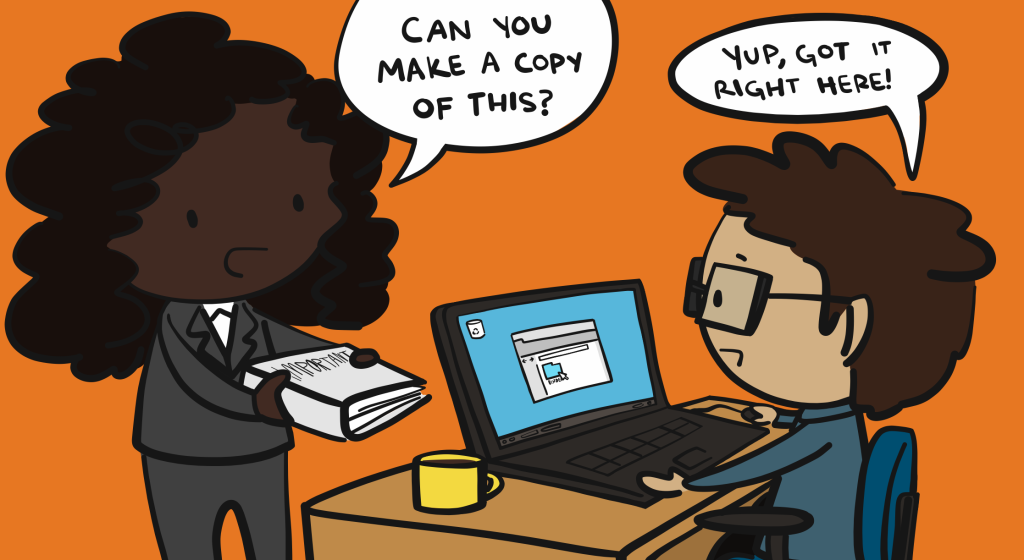It’s often said that paralegals have the hardest job in the legal profession because they are the glue of any matter, as well as carrying the added pressure of ensuring their attorneys are as organized as they can be. Even for the most experienced paralegal, the helpful tricks found here will make any paralegal’s life easier, while making them invaluable to their attorneys.
-
Index everything
It may seem tedious in the beginning, but the time saving benefits of indexing are critical when you’re in the middle of a deposition or trial and need to recall a date of production or bates range. Excel is a great tool for indexing needs and standard in almost all corporate firms. Excel allows you to sort columns quickly and search for items. Key things a paralegal should keep per matter: a production index and a master prep index.
Production index
Your master production index should contain any production that comes in per matter, and should have the following columns:
i. Matter name/case no.
ii. Producing party (especially important when there are multiple parties)
iii. Date received
iv. Media format (CD/DVD/thumb drive, hard-drive, FTP, etc.)
v. Starting Bates range
vi. Ending Bates range
vii. Date loaded to database
viii. Notes
It’s important to keep these in separate columns so that you can easily sort them later on by date, starting bates, etc.
Master prep index
Any binder of documents you prepare for review should have an index within them. Not only will this help you later to find documents you used for specific witnesses or motions binders, but it will make your work-product presentation to the attorneys you work for look stellar. A master prep index is a collection of the binder indices you’ve made in a matter, in one Excel Workbook. Your indices could have the following fields, depending on what type of task you are preparing for:
i. Tab no.
ii. Relevant date (i.e., for email chains, it could be the very last email on the chain)
iii. Relevant start Bates
iv. Relevant end Bates
v. Sending party(ies)
vi. Receiving party(ies)
vii. Anyone cc’d
viii. Description of document (try to be consistent)
Having these all in one workbook also comes in handy when you need to search for a particular document across multiple sources.
-
Stop photocopying binders to recreate them. Utilize technology!
So many “old school” paralegal ways are a waste of time and not efficient. For example, there are many attorneys who will give their paralegals a binder of documents and ask them to recreate it over and over and over. Taking a binder apart and copying the pages and putting it back together is tedious, leaves room for error, and if you’re working for “Big Law” your copy center people will hate you. Creating an electronic binder is super easy and keeps your prep materials pristine. You create the electronic binders by:
- Collect all the files you need into one folder in your matter shared drive on your computer (pdfs, .doc., .exe, etc.)
- Create an index of the documents in Excel (see the tips above)
- Sort the documents in the preference of your attorney (date order? Starting bates order? By “sent” if it’s communications)
- Once sorted, populate the “Tab No.” column
- Rename the electronic files by “Tab No.” in the folder (001,002, 003). Note: it’s important when naming electronic files with tab nos to use the format 001, 002, etc. so that they sort appropriately.)
- Save a copy of the index folder as “000”
Making your binders electronically first and then sending them to the printer offers the following benefits:
- When that partner inevitably asks you to make that binder again, you can just go to the shared file on your computer and simply resend the binder to print.
- Indexing becomes a breeze, as well as copy checking the binder (which you should always do before giving any work product to anyone).
- This binder organization technique translates into deposition exhibit and outline preparation, trial preparation, motion exhibit preparation, etc.
-
- Use your Outlook calendar to keep track of upcoming deadlines, with the reminders set for 5 days before they’re due. This way, if you haven’t seen a draft being circulated to the team, you can ask where it is and remind your team of the impending deadline.
- Know your resources and have them handy! For example, if a deposition notice comes in, you should anticipate the need to book a conference room, a prep room, a court reporter and/or videographer.
-
Anticipate everything
Are you going to court for a hearing or trial? Make sure in addition to the typical paperwork, you prep a supply box that includes the following: extra pens, legal pads, stapler, staple remover, white out, highlighters, post-its, tape, extra folders, extra binder tabs, empty binders, hole punchers, water, tissues, etc. This sounds like a tall order and no one is asking you to be a mind reader. But the beauty of the law is that it’s a practice with deadlines and rules that don’t change. In this vein, a paralegal should anticipate what the team will need and remind them if they don’t seem to be on track. This extra prep will be lifesaving to your team.
-
Never stop learning
Make sure you stay sharp on your skills and learn new skills to increase your value. If you’ve never heard of the Bluebook, you should take a class and learn this valuable proofreading skill. Stay on top of your civil procedures and whenever you’re in a new court, look to the local rules as a first step to understand your attorney’s environment. All these skills will not only make you invaluable to the team, they will also potentially help increase your income! An efficient and skillful paralegal is worth a great deal of money to any firm.



